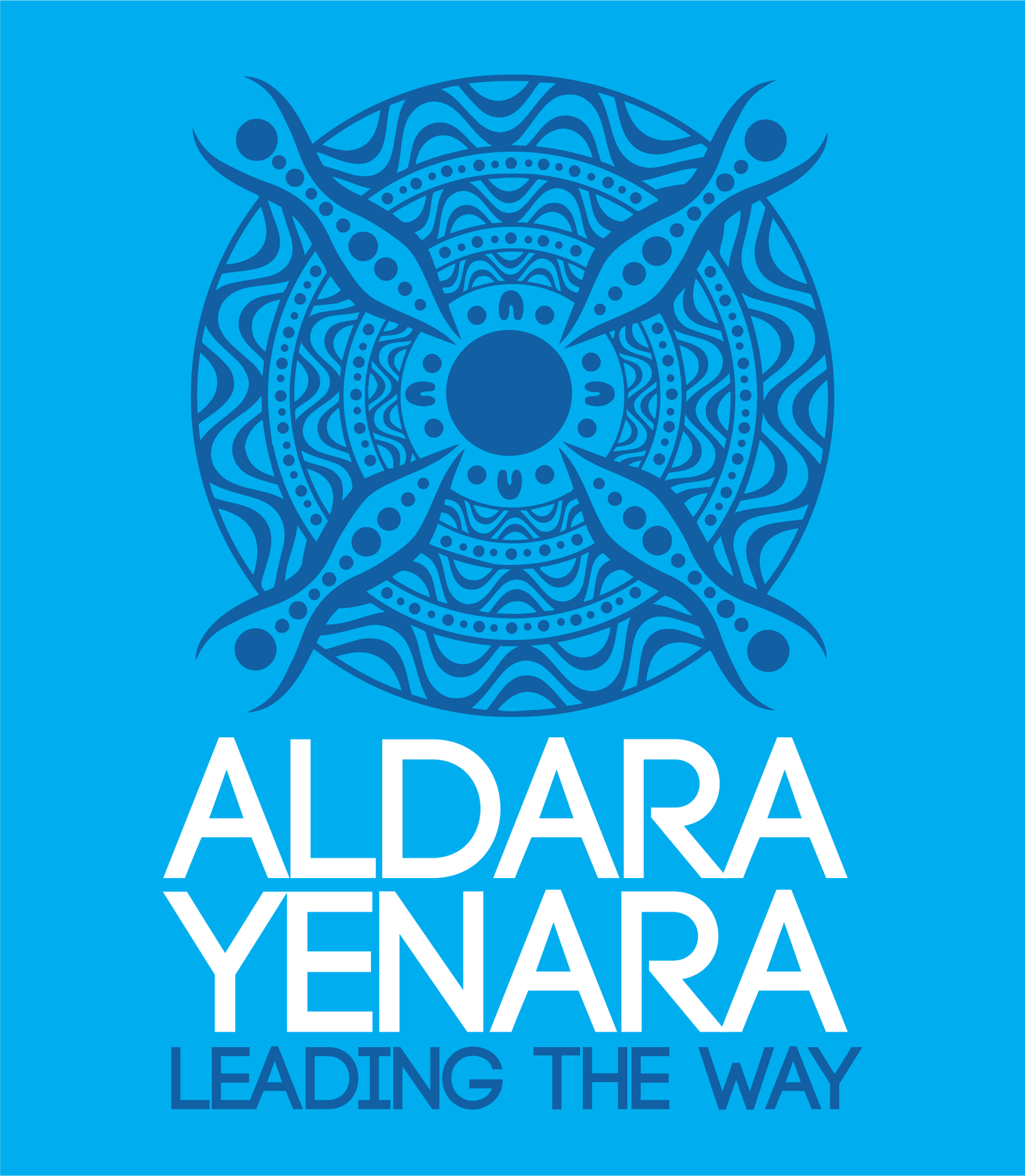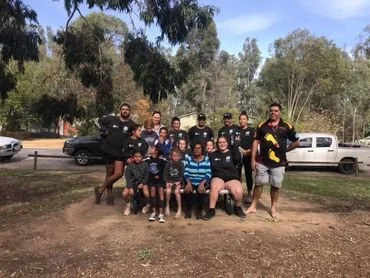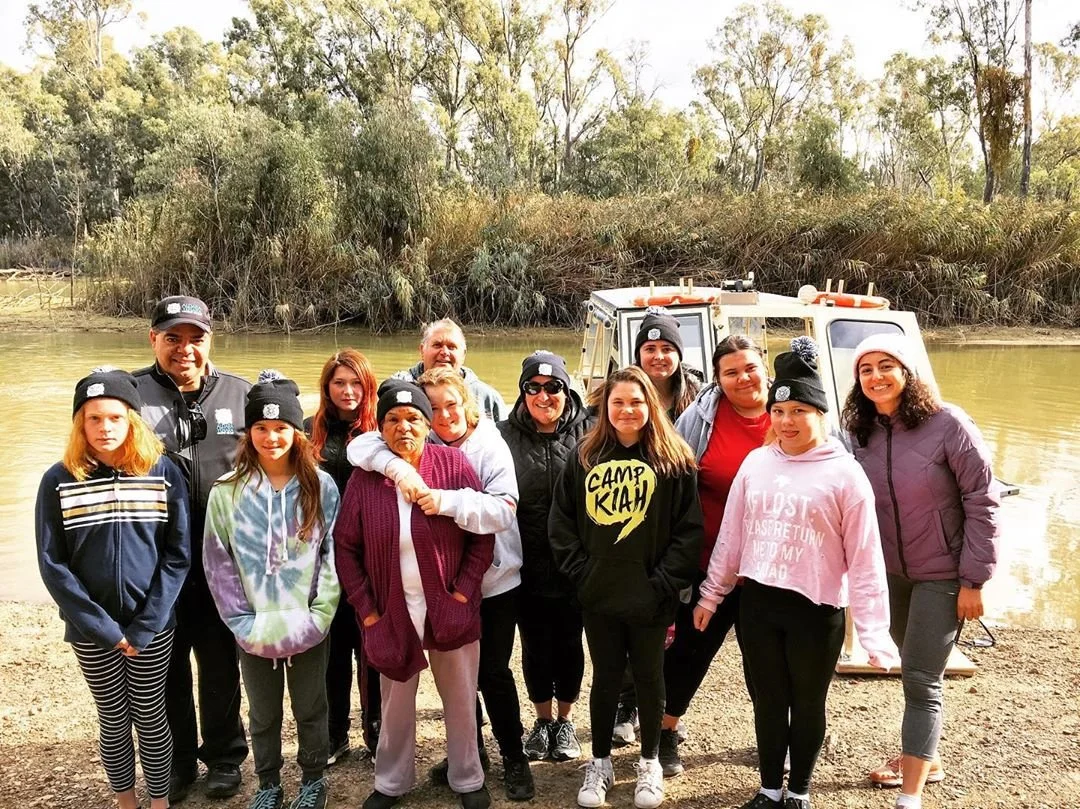Our Objectives are backed by ResearCh!
AYAC and La Trobe Rural Health School Partnership: Strengthening Aboriginal Youth Mentoring
Date: 14 September 2023
In a significant step towards enhancing youth mentoring, Aldara Yenara Aboriginal Corporation partnered with La Trobe Rural Health School to conduct an Aboriginal-led review of Aboriginal youth mentoring, particularly focusing on On Country programs. This project, supported by the Victorian Government, aimed to evaluate an under-explored yet highly valuable approach to mentoring Aboriginal youth.
The evaluation was led by Yorta Yorta researcher Dr. Mishel McMahon and her colleague, Dr. Corina Modderman. Their work centered on a widely adopted yet under-evaluated practice: On Country youth camps. These camps, run by Aboriginal organisations across regional Victoria, offer a unique opportunity for young Aboriginal people who may feel disconnected from their culture or face various life challenges to reconnect with Country, community, and cultural practices.
As part of the Victorian Government's Korin Korin Balit-Djak plan, the goal was to provide evidence for the benefits of On Country mentoring and to develop a strong, consistent service model for current and future programs. According to Dr. McMahon, "Anecdotally, community talks about the benefits of On Country mentoring, but research has not properly looked into what contributes to the successful outcomes and what features need to be included so that each program works."
The evaluation also revealed that previous research had overlooked cultural concepts, focusing instead on addressing youth at risk, rather than empowering young Aboriginal leaders. Dr. Modderman noted, “Earlier evaluations were not First Nations-led, missing the richness of cultural perspectives.” This approach gave prominence to Aboriginal leadership, as one participant poignantly stated, “I am a warrior.”
The review, conducted in two phases, involved Aldara Yenara staff, local Elders, and community leaders, along with academic researchers who engaged with youth through camps and yarning circles on Yorta Yorta Country. The powerful connection to Country emerged as a critical element for healing and self-discovery, with one young person saying the experience was “like medicine.”
Key Recommendations from the Evaluation
The findings, which are now under consideration for a potential statewide model, provided several important recommendations:
On Country mentoring: Mentoring should be delivered on Country, with Country regarded as a key stakeholder in healing processes.
Community Involvement: Mentoring should extend beyond youth to include family, extended family, and community members to reinforce key messages.
Cultural Language: Aboriginal language and communication methods such as storytelling, humour, yarning, and deep listening should be central to mentoring programs.
Aboriginal Leadership: Mentoring programs must be led by Aboriginal people, with Elders and Aboriginal healers guiding cultural restorative practices.
Holistic Health: Programs should promote healthy eating and self-care, linking physical wellbeing with strong thinking and cultural identity.
Fee-for-Service Camps: There is potential to provide On Country camps for non-Aboriginal cohorts on a fee-for-service model.
Inclusion: Programs should cater to diverse identities, including LGBTQIA+ Aboriginal youth, with respect to men’s and women’s business.
Leadership Pathways: Mentees should be encouraged to return as mentors in future programs, fostering new generations of leaders.
Aldara Yenara is already applying these findings to strengthen its youth mentoring programs and reinforce its leadership in this field.
To read the research article, visit HERE
A Promising Future
This partnership marks a transformative moment in Aboriginal youth mentoring. As Dr. McMahon reflects, “Aboriginal youth mentoring is a concept that is thousands of years old, and I hope this work enables more providers like Aldara Yenara to make a real difference in young lives.” Through this evaluation, First Nations concepts of healing, engagement, and leadership are brought to the forefront of program design and delivery, showcasing the power of self-determination in research.



